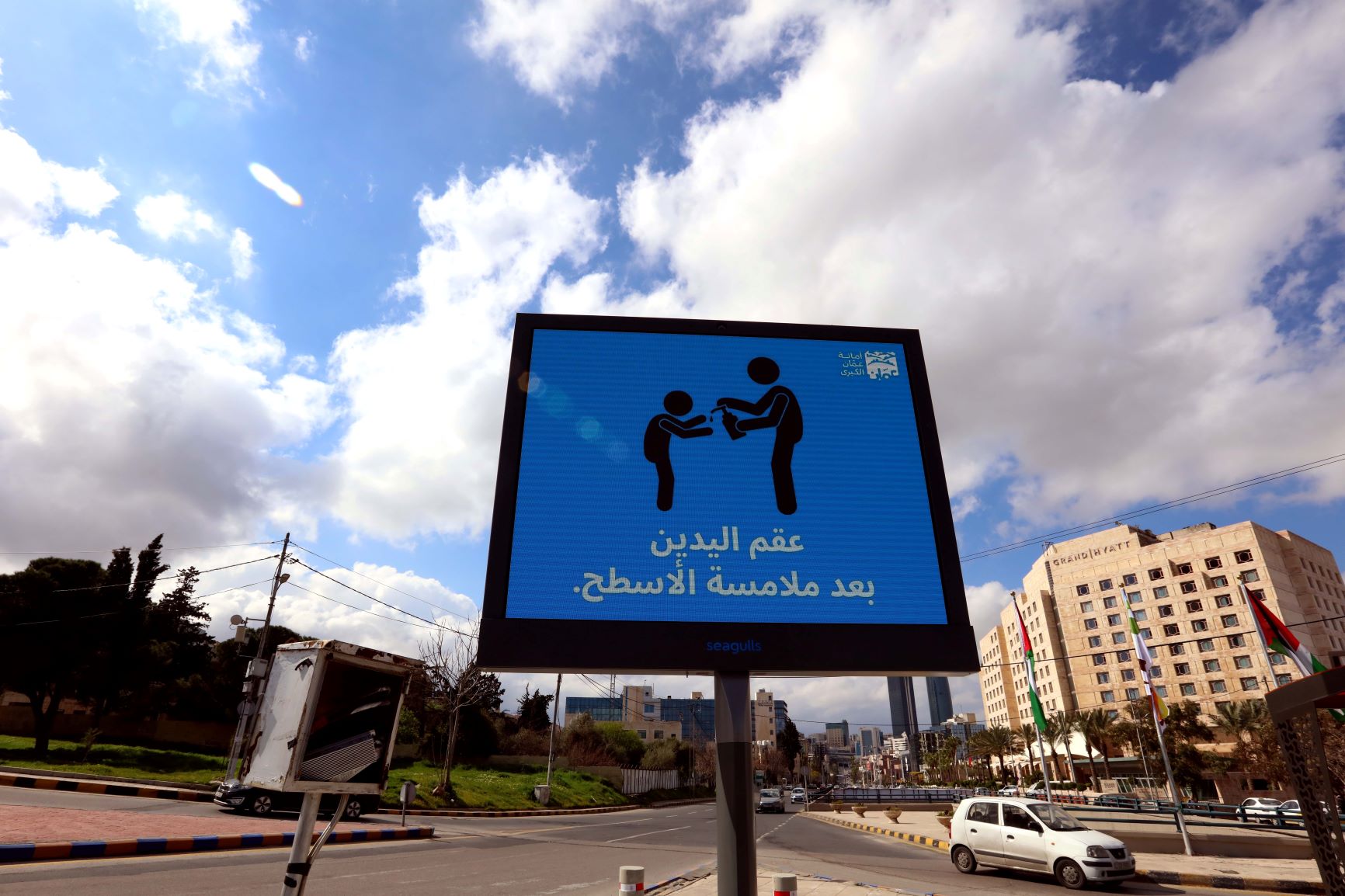When a pandemic like COVID-19 strikes, the most vulnerable countries suffer the most. This is especially true in countries such as Jordan and Tanzania where the capacity of the health system is already under pressure and the most vulnerable people are therefore at extra risk if the virus spreads.
The Novo Nordisk Foundation wants to take responsibility internationally and contribute to mitigating the risk of transmission of COVID-19 in vulnerable countries. The Foundation is therefore providing a total of DKK 20 million for three projects in Jordan and one in Tanzania.
“We want to help countries where the health system and society as a whole are vulnerable to the extra burden that the spread of COVID-19 will impose. The Novo Nordisk Foundation is therefore supporting four projects that can very concretely help to create better health conditions for some of the world’s most vulnerable people,” says Hanna Line Jakobsen, Senior Vice President, Social & Humanitarian, Novo Nordisk Foundation.
In one supported project in Jordan, UNICEF will work to secure the water supply to locations such as Jordan’s refugee camps, which with the advent of COVID-19 have an even greater need for clean water. In another programme, the Danish Refugee Council will, among other things, distribute hygiene kits to the most vulnerable refugees living outside the official camps in Jordan. The Council will also establish a cash for health programme in which refugees can receive money to pay for food, rent, healthcare and other things.
In the last two projects, the World Diabetes Foundation, through various initiatives, will work to mitigate the risk of COVID-19 transmission among refugees and other vulnerable groups with noncommunicable diseases in Jordan and Tanzania.
“These three organizations are already delivering numerous initiatives in Jordan and Tanzania together with local partners. These grants will enable the organizations to use their existing knowledge of local conditions and focus on ensuring the best possible conditions to mitigate the effects of COVID-19 among especially vulnerable groups,” says Hanna Line Jakobsen.
The Foundation is already collaborating with UNICEF, the Danish Refugee Council and the World Diabetes Foundation on projects in Jordan and Tanzania focusing on improving conditions for refugees and other vulnerable groups.
Facts on the four new projects supported in Jordan and Tanzania
The Foundation is providing DKK 5 million for each of the four projects.
COVID-19 Pandemic in Humanitarian Settings, World Diabetes Foundation
The World Diabetes Foundation’s project in Jordan focuses on improving access to Jordan’s health system for Syrian refugees and other vulnerable groups with noncommunicable diseases. Hygiene products and other necessities will also be distributed, and health workers working with these vulnerable groups will receive special training. Further, the project will strive to raise the level of knowledge about COVID-19 among people with noncommunicable diseases and the rest of the population. Read more here.
Integrated COVID-19 Emergency Response in Jordan, UNICEF
UNICEF is collaborating with the Government of Jordan to secure the water supply to Jordan’s refugee camps and elsewhere, which has an even greater need for clean water with the advent of COVID-19. The project will also procure personal protective equipment for health workers at the Azraq Refugee Camp and distribute necessary hygiene products to the most vulnerable refugee groups in Jordan.
COVID-19 Outbreak Response in Jordan, Danish Refugee Council
In this project, the Danish Refugee Council will focus on the numerous refugees living outside the official camps in Jordan. The project will distribute hygiene kits to the most vulnerable families and will also establish a cash for health programme in which refugees can receive money to pay for food, rent, healthcare and other things.
COVID-19 Pandemic in Low-income Settings, World Diabetes Foundation
The World Diabetes Foundation’s project in Tanzania especially emphasizes strengthening the capacity of local health professionals to best care for people with COVID-19 who also have noncommunicable diseases. In parallel, efforts will be made to raise the level of knowledge about COVID-19 among people with noncommunicable diseases and the rest of the population. Read more here.
Further information
Sabina Askholm Larsen, Communications Partner, [email protected], +45 2367 3226








